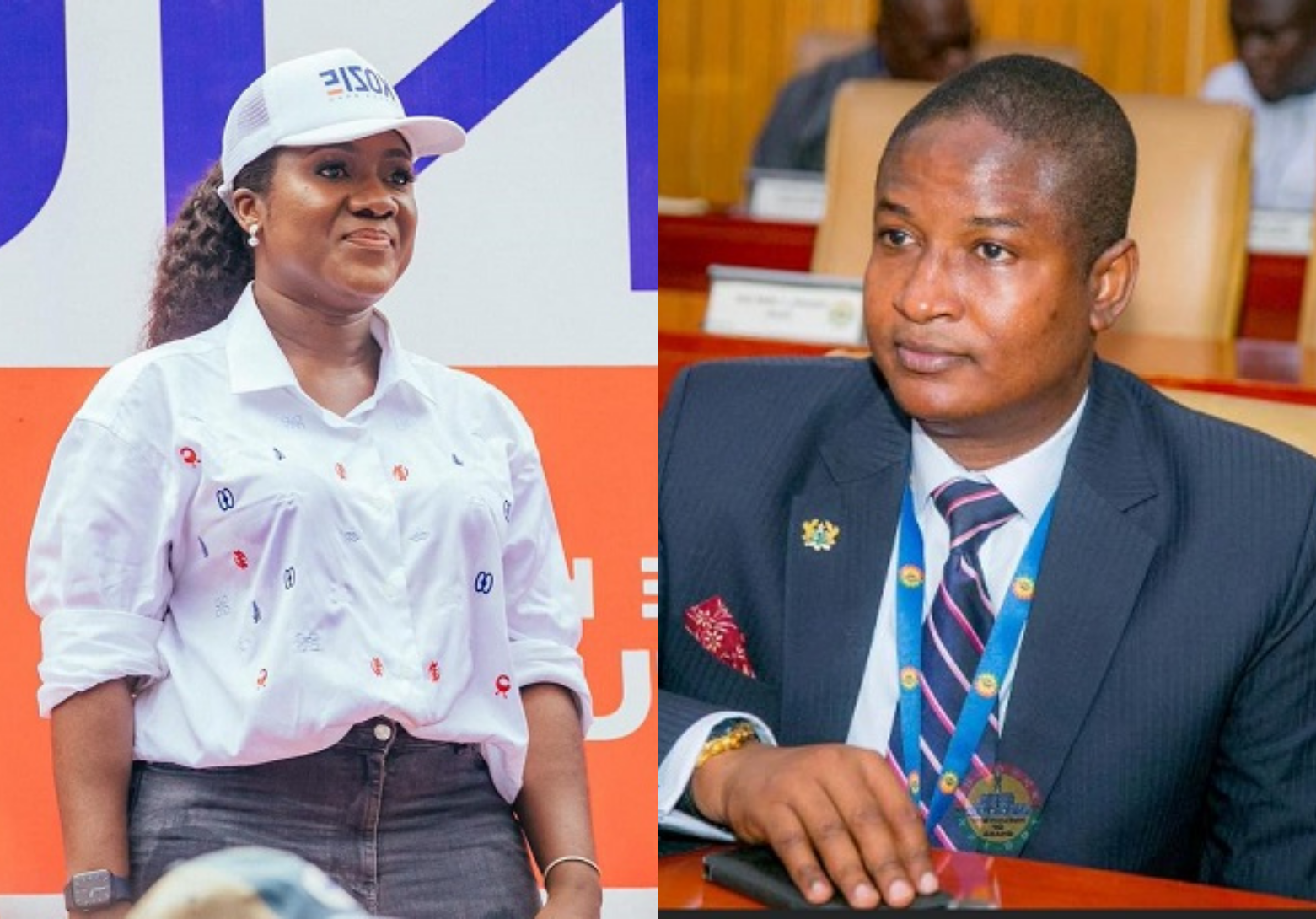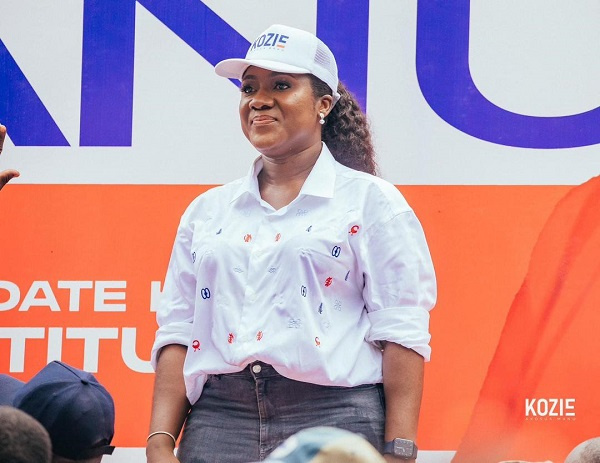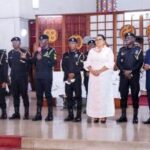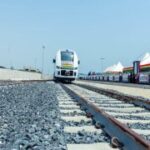
Adenta Constituency, located in the Greater Accra Region presents a unique case in the country’s political landscape.
Unlike many constituencies in Ghana, Adenta does not serve as a clear stronghold for either the National Democratic Congress (NDC) or the New Patriotic Party (NPP).
Traditionally, it has been considered a stronghold for both the NDC and NPP at different times, reflecting a broader trend of fluctuating support that is not unusual in Ghanaian politics.
However, recent developments indicate that the constituency is becoming increasingly competitive and unpredictable.
This neutrality has made it a fascinating area for political analysts and strategists alike, as voting patterns here can be quite telling of broader national trends.
No legislator has managed to get re-elected for more than one term.
After annexing the seat as the first MP for the area in 2004, the NPP’s Kwadjo Opare-Hammond lost to Kojo Adu Asare in the 2008 election.
In the past, the NDC enjoyed a period of dominance in Adenta, leveraging support from a diverse voter base that included many young and urban voters.
Conversely, the NPP has also seen significant success in this constituency, especially in recent elections where its appeal to middle-class and entrepreneurial voters has strengthened.
Historical voting patterns
Historically, the Adenta Constituency has exhibited a dynamic and fluctuating political landscape. It has often been characterised by a close contest between the major political parties.
Unlike regions where one party dominates, Adenta’s voting patterns suggest a more balanced and competitive environment.
2000 elections: In the 2000 presidential elections, the constituency leaned slightly towards the NPP. This was reflective of the party’s national momentum during that period, but the margin of victory was not substantial.
2004 elections: The 2004 elections saw a shift, with the NDC making notable gains. This change in preference illustrated the constituency’s tendency to swing between the two major parties based on the prevailing national sentiments and local issues.
2008 and 2012 elections: The trend of a balanced contest continued into the 2008 and 2012 elections.
In both instances, the NPP and NDC secured nearly equal shares of the vote, with slight variations reflecting the changing political climate and candidate appeal.
2016 and 2020 elections: The 2016 and 2020 elections were particularly noteworthy.
In 2016, the NPP managed to secure a narrow victory, but the 2020 elections saw a resurgence of NDC support, reflecting the constituency’s volatility and responsiveness to campaign dynamics.
Several factors contribute to Adenta’s status as a battleground constituency:
Demographics: Adenta is a diverse area with a mix of urban and peri-urban populations.
This diversity influences voting patterns, as different demographic groups may have varying political preferences and priorities.
Economic issues: Local economic issues, such as employment opportunities and infrastructure development, play a significant role in shaping voter preferences. Both parties must address these concerns to gain support.
Candidate appeal: The individual appeal of candidates also impacts electoral outcomes.
Strong local candidates with a good understanding of the constituency’s needs often have an advantage.
Local issues: The constituency faces a range of local issues, including infrastructure development, sanitation, and education.
Both parties are grappling with how best to address these concerns, and their respective strategies will play a crucial role in shaping voter preferences.
Party strategies: Both the NDC and NPP are intensifying their campaign efforts in Adenta, recognizing the constituency’s importance in the overall electoral strategy. The NDC is focusing on its record of social and economic development, while the NPP is emphasizing its achievements in infrastructure and economic growth.
Youth and social media influence: The growing influence of social media and the increased political engagement of younger voters are also factors that cannot be ignored.
Candidates and parties must navigate a more connected and vocal electorate, which adds another layer of complexity to their campaigns.
National trends: National political trends and the performance of the sitting government or opposition can sway voter sentiment in Adenta, as in other constituencies.
NPP parliamentary candidate Akosua Manu
The NPP parliamentary hopeful in the Adenta constituency, Akosua Manu assured party members that she will make sure the party reclaims its seat to regain full majority control in 2024.
Kozie expressed her passion for uplifting the community and transforming it into a model constituency.
She highlighted the need for collaboration between government agencies, civil society organisations, and the private sector to drive sustainable development and create opportunities for the youth.

Mohammed Adamu Ramadan of the NDC
In the 2016 parliamentary elections, Ramadan stood for the NDC in Adenta and lost to the NPP’s Yaw Buaben Asamoa.
Asamoa polled 33,952 votes representing 50.64% as against Ramadan’s 32,588 votes which was 48.61%.
He once again stood for the primaries for the NDC and won to represent them in the 2020 elections. He won against a former Minister for Gender, Children and Social Protection, Nana Oye Lithur. He won by polling 730 votes against her 558 votes to be declared winner.
Ramadan was sworn in as Member of Parliament representing the Adenta Constituency in the 8th Parliament of the 4th Republic of Ghana on January 7, 2021 after beating Yaw Buaben Asamoa in the parliamentary election. He serves as a member of the Health Committee and Business Committee of Parliament.
Ahead of the 2024 elections, he has expressed readiness to work with his contenders and is confident of breaking the four-year circle of electing MPs.

Implications for 2024
As the 2024 elections approach, Adenta remains a battleground where neither the NDC nor the NPP can afford to be complacent.
The constituency’s shifting dynamics mean that campaign strategies need to be finely tuned and responsive to local issues and voter concerns.
The outcome in Adenta will likely be a key indicator of broader national trends and could serve as a critical test of each party’s ability to adapt to changing political realities.
Adenta will continue to be a key area to watch, offering insights into the shifting dynamics of the nation’s political landscape.
Both the NDC and NPP face significant challenges in securing a decisive victory here, making Adenta one of the most intriguing and contested constituencies in Ghanaian politics today.
Pulse





